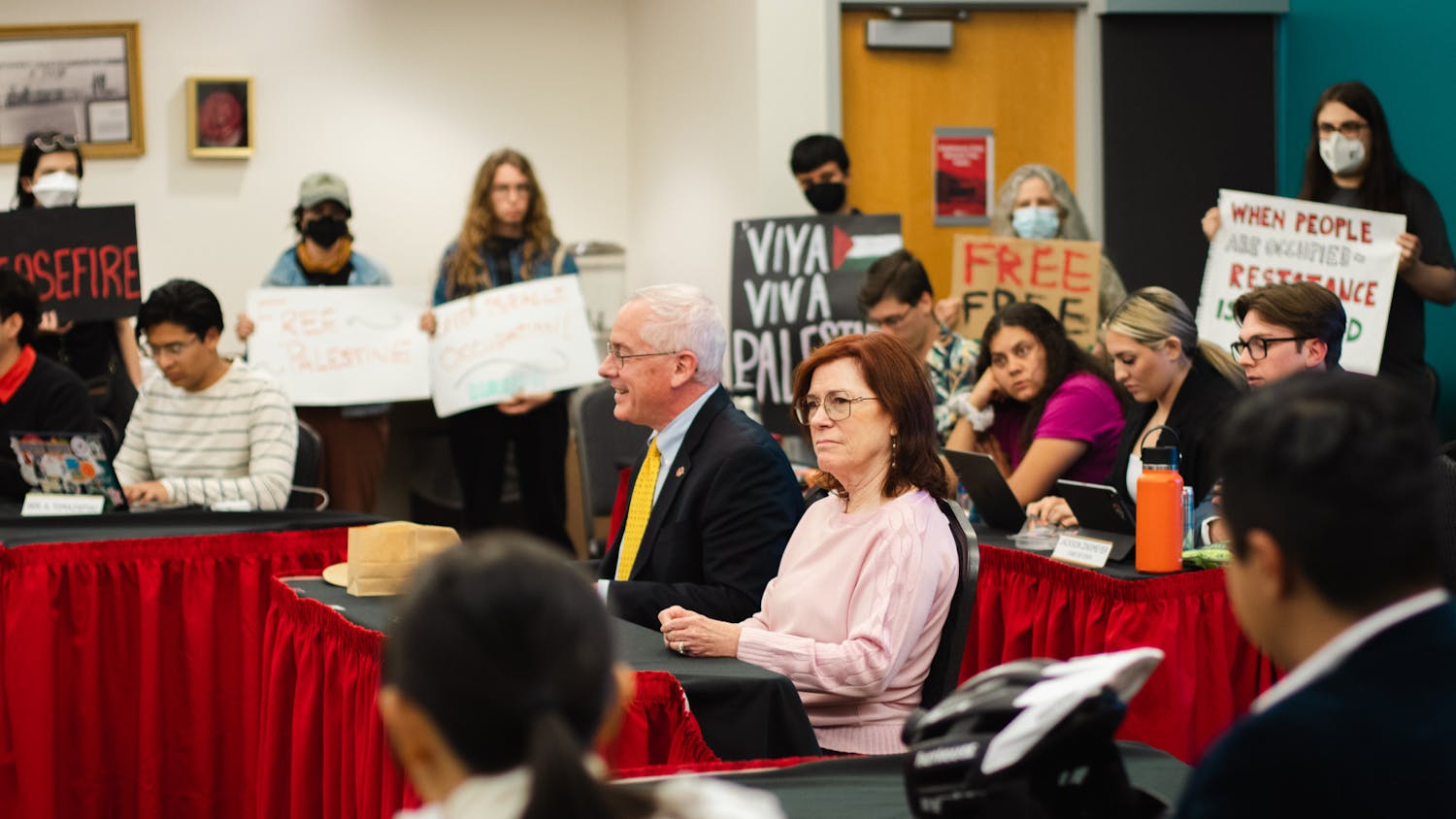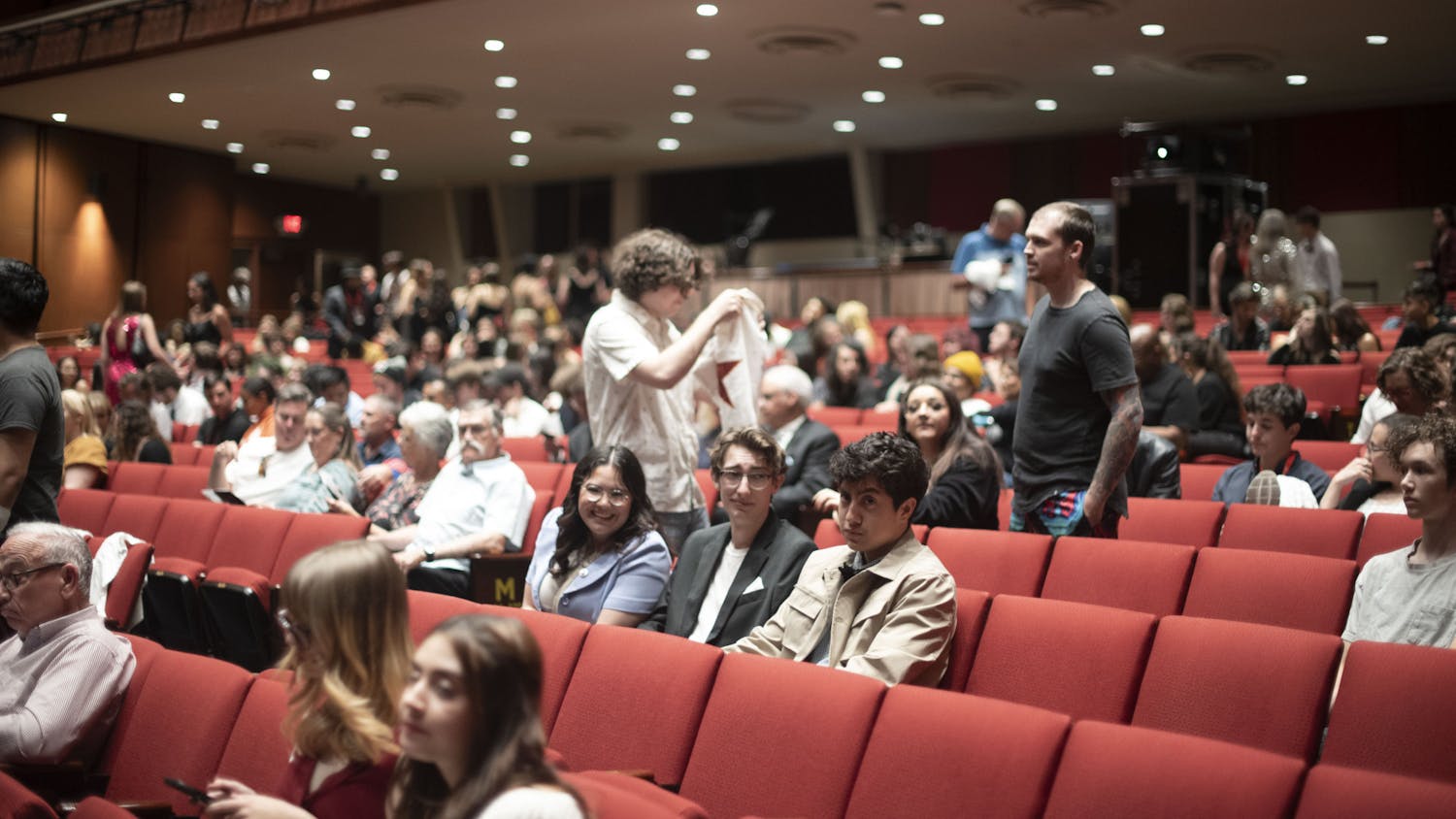According to UNM Police Department statistics, about 65 percent of all drug-related confiscations on campus from April 17, 2014 to March 2, 2015 were of marijuana or marijuana paraphernalia. Out of the 53 incidents of possession of controlled substances within the last year, 35 occurred within residence halls or American Campus Communities properties.
According to UNM policy, “the unlawful manufacture, distribution, dispensing, possession or use of controlled substances or alcohol on UNM property or as part of any of its activities by any member of The University of New Mexico community — faculty, staff or student — is strictly prohibited.”
Megan Chibanga, Residence Life and Student Housing manager, said in most weeks there is probably only one incident of marijuana possession. In terms of class years of those caught, marijuana possession runs the gamut and stays pretty consistent throughout the school year, she said.
“One thing we know is that if students do smoke marijuana in the halls and they are caught with it, very rarely do we have students that we are dealing with multiple times,” Chibanga said.
Most of the time when students are caught with marijuana possession it is because a student smells it and alerts a staff member or residence life staff smells it, she said.
UNM’s sanctions for
drug violations
Rob Burford, student conduct officer for the Dean of Students Office, said alcohol violations are still more common than marijuana, yet marijuana infractions still occur regularly.
“I don’t know if it’s in relation or if it’s just different people, but coincidentally, it has seemed to go up in use,” Burford said. “The numbers, as far as marijuana offenses, are kind of in correlation as to when Colorado legalized it there.”
Students are given three options to determine responsibility and sanctions for offense: an informational disposition conference, an administrative hearing with a student conduct officer or a student conduct committee hearing.
The informational disposition conference is more popular, and the hearing with a student conduct committee is rarely chosen, he said.
Get content from The Daily Lobo delivered to your inbox
For first-time drug offenses for students, it is mandatory to attend a workshop, a warning is prescribed and an informational letter is sent to the parents or guardians of students.
For a second offense, he said, students are generally put on probation; and if the terms are violated while on probation, the student could be suspended or expelled from UNM.
A third offense could result in suspension or a more lengthy probation status, he said. However, everything is situational and the sanctions could change.
The start of the semester and sometimes near the end is when there is an uptick of drug violations, he said.
If a student violates the drug policy in the residence halls the sanctions are usually dealt with by a professional staff member in residence life. However, if the student is a repeat offender the case goes to the Dean of Students, he said.
Chibanga said the process for residence life closely mirrors the Dean of Students’ process, but the probation levels vary.
Before sanctions are given, the residence life staff takes into account all factors to be sure the punishment is not too harsh or lenient.
“College students are going to be college students, and so harder punishments — I don’t know that punishment is the answer to this. I think it is education on the onset,” Chibanga said.
COSAP’s workshops
for offenders
John Steiner, program manager of Campus Office of Substance Abuse Prevention, conducts 50 percent of the workshops, and he said there has been an increase of attendees who are there for marijuana.
“It seems to be getting bigger, and that’s always a tricky thing, ... because it seems that tastes are changing and students are moving away from alcohol to marijuana,” he said. “Is it that the housing people are more vigilant now for marijuana and grabbing up more of the people?”
He also said the legalization movement adds complexity to the situation and could be a factor in the increase.
Even though there is not one class year more frequently participating than another in the workshop, 99 percent of attendees are from the residence halls, he said. Also, more people seem to attend workshops in the fall term than the spring, he said.
“We’re here for students, we are not here against students even though our task is to prevent alcohol and other drugs from messing the academic experience for students,” Steiner said. “We shouldn’t be viewed as an enforcement thing. Prevention can be delivered in a way that is kind to students.”
Should policies change as
legalization grows?
With some states legalizing marijuana, like neighboring Colorado, the issue over recreational use is spreading. If the New Mexico Legislature opts to legalize it, one student group believes UNM’s policies should change.
Nathan Dobie, a sophomore engineering major and president of Students for Sensible Drug Policy, said the organization aims to raise awareness of drugs and push for students to make their own decisions.
Students should be allowed to experiment because college is a time of learning and growth, he said.
“Why should a place of learning be conformed to archaic drug laws?” Dobie said.
The UNM system is not working because marijuana is still prevalent around campus, he said. Pushing things into the deepest corners of society only perpetuates the violence associated with drugs, which doesn’t help society or UNM, he said.
In order to reflect the place of learning, Dobie said, the policies should change if marijuana becomes legalized in NM, except the smoking bans indoors.
“UNM would probably be worried and federal laws, as it receives federal dollars too, and I wouldn’t expect them to change policy,” Dobie said. “However, I think it would be right, too.”
However, Chibanga said, even if marijuana was legalized, the policy would not change because UNM’s federal funding under the Drug-Free School act would be in jeopardy.
There may be a change in legal ramifications, but not administrative, she said.
“The University, in order to maintain receipt of federal funding, can in no way allow the usage or possession of marijuana on campus,” Chibanga said.
Lauren Marvin is the culture editor for the Daily Lobo. She can be reached at culture@dailylobo.com or on Twitter @LaurenMarvin.





